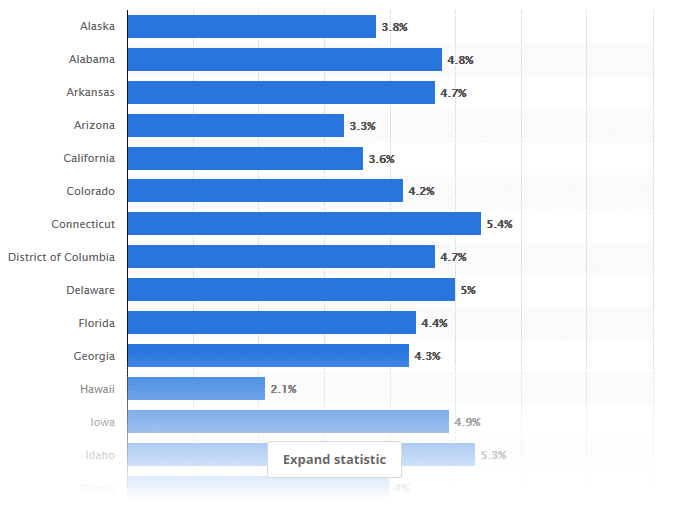How to Recover from Acute Depression


If I’m not mistaken, you’re the kind of person who likes to solve your problems by seeking external help, whenever possible. Also, you want to know the root cause of your low mental state. I’m hoping you fall into this category. There were millions of people like you, who were in the same situation as you are today and they succeeded in overcoming depression.
Acute Depression is a traumatic condition. It takes away your freedom to live a happy, fulfilled and empowered life. A depressed person constantly complains of feeling tired and unmotivated to perform basic activities of daily living. Also, moaning about petty issues is quite common.
Depression is prevalent in societies with low income and poor standard of living.[1]
What is acute depression?
Acute depression is a low feeling in your body and mind— it’s always present in the background like a refrigerator hum noise. It makes you hate yourself and the world around you. It’s present the moment you wake up in the morning and stays throughout the day making your life miserable.
Generally, women are more prone to depression. If the current trend and lifestyle remain the same for the next couple of years, depression will increase by 5.7 percent in relation to other diseases.[1]
Recently, comedian and actor Jim Carrey opened up about his battles with depression and how he dealt with it. He blamed his condition to the false image he had created over the years— he calls this facade as his “ego”. He did everything to fit into the mold someone else had formed for him. As a result, it made him feel isolated from himself and society.
Jim took a much-debated holistic approach to recover from depression.
This is what he had to say about his condition :
“People talk about depression all the time. The difference between depression and sadness is sadness is just from happenstance—whatever happened or didn’t happen for you, or grief, or whatever it is. Depression is your body saying f*ck you, I don’t want to be this character anymore, I don’t want to hold up this avatar that you’ve created in the world. It’s too much for me.”[2]
Why is recovery from acute depression difficult for most people?
Immediate action is necessary to tackle a condition like depression. Studies have proven time and time again that ignorance and wallowing in self-pity creates a victim identity— which leads to a downward spiral. That’s why most depressed people cannot conceive the idea of personal change. They get so comfortable and attached to their identity of a sad person that they feel lost without it.
A survey done in the United States, 2016 shows that about 4.4 percent of individuals suffered from depression. This data was released by an American health insurance firm called Blue Cross Blue Shield Association in May 2018.[1]

Find more statistics at Statista
Let’s look at the action steps necessary to quickly recover from acute depression.
Exercise regularly
Resistance training not only makes you stronger and fitter but also has a profound influence on your mood. So, grab a pair of dumbbells and follow any genuine youtube “Dumbell Workout Routine at Home” video.
According to a study by Victoria University, Melbourne, Australia, resistance training significantly improved the moods of depressed individuals with type 2 diabetes, as measured by the Cardiac Depression Scale (CDS).[1]
Furthermore, resistance training also increases testosterone levels in men. Low testosterone can make any man feel weak and deficient. You’ll be glad to know that exercising gives a testosterone boost in as early as 15 minutes after the workout.[2]
Research also shows that the benefits of a structured exercise routine can be long-lasting compared to the consumption of anti-depressant drugs available in the market. It is also risk-free to exercise as opposed to dealing with the side effects of pharmaceutical drugs.
Subjects who took part in 12 weeks of physical training showed greater improvements in depression, anxiety, and self-concept than those who didn’t. Also, they maintained their muscle gains for a longer period than those participants who didn’t undergo training.[3]
Meditation as an alternative treatment option.

In or over the last decade, meditation has been slowly becoming prevalent in western countries. Thanks to authors of spiritual and mindfulness books, this ancient mind-calming technique is available for us to take advantage of.
Mindfulness meditation is a mind-body exercise that involves being aware of our thoughts, feelings, and sensations in different parts of our body.
Many east-Asian gurus have made a living in the west by teaching this technique and the philosophy behind it.
How does it help relieve depression?
The autonomic nervous system (ANS) is a system of motor neurons comprised of two branches: the sympathetic nervous system (SNS) and the parasympathetic nervous system (PNS). The SNS prepares the body for vigorous physical activity, whereas the PNS governs relaxation, recuperation, and digestion.
So, by consciously breathing in a rhythmic manner, we have the power to activate the parasympathetic nervous system (PNS). Thus, we can feel relaxed and calm anytime we want. And over time, the parasympathetic nervous system (PNS) can be trained to switch on and off like a switch.[1]
It is scientifically proven that meditation can cure physical and psychological illness. You just need the discipline to practice it daily.
Read self-help books

America is known as a self-help nation. But, other nations in the eastern part of the world are not far behind and are catching up with their western counterparts. With the invent of digital reading devices like Kindle, the self-help industry has focused its attention on providing high-grade reading material on topics like anxiety, depression and trauma-related disorders.
According to a study done by Chapman University along with a few other reputed universities in the United States, self-help books written by mental health professionals are more reliable and scored high on a scale obtained from the research on bibliotherapy ( reading books as a therapy in the treatment of mental or psychological disorders).[1]
Furthermore, the researchers rated 50 top-selling self-help books for anxiety, depressive, and trauma-related disorders based on how much scientifically sound the advice in those books is. The books having a woo-woo perspective, or those focusing on things outside the scope of modern day science were straight away dismissed.
A person who is depressed or is in a bad circumstance in life can get bewildered by the number of resources available at his disposal. There are a lot of self-help authors out there who take advantage of this fact. As a result, we see books with zero practical advice in the best sellers section of bookstores.
Conclusion :
I know some of the techniques mentioned above won’t make you instantly happy and take care of your problems right away but you have to start somewhere.
Conversely, adding exercise, meditation, and reading to your daily schedule can be a big upgrade to your current lifestyle. It may seem like a lot of work in the beginning but, with time, things will become easy.
Resources
[1] “Acute depression: treatment and nursing strategies for this … – NCBI.” Accessed February 19, 2019. https://www.ncbi.nlm.nih.gov/pubmed/3638698.
[2] “Incorporating Deaths Near the Time of Birth into Estimates of … – NCBI.” Accessed February 19, 2019. https://www.ncbi.nlm.nih.gov/pubmed/21250371.
[3] “Jim Carrey (@officialcarrey) | Twitter.” Accessed February 19, 2019. https://twitter.com/officialcarrey.
[4] “Blue Cross Blue Shield.” Accessed February 19, 2019. https://www.bcbs.com/.
[5] “Resistance training improves depressive symptoms in … – NCBI.” Accessed February 19, 2019. https://www.ncbi.nlm.nih.gov/pubmed/21659891.
[6] “Exercise and Testosterone Levels – WebMD.” Accessed February 19, 2019. https://www.webmd.com/men/features/exercise-and-testosterone.
[7] “The Benefits of Exercise for the Clinically ….” Accessed February 19, 2019. https://www.ncbi.nlm.nih.gov/pmc/articles/PMC474733/.
[8] “An update on mindfulness meditation as a self-help … – NCBI – NIH.” Accessed February 19, 2019. https://www.ncbi.nlm.nih.gov/pmc/articles/PMC3500142/.
[9] “Popular Self-Help Books for Anxiety, Depression, and Trauma – SSRN.” Accessed February 19, 2019. https://www.ssrn.com/abstract=1300004.

